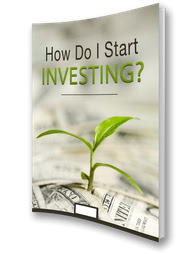I will be the first to admit—bonds are not attractive right now. 1.3% on tens. Negative real yields on junk bonds. Inflation ramping. Massive amounts of supply. It’s all bad.
You still have to own some.
No, really, you do. Look, I’m not saying you have to own the full 40% of a 60/40 portfolio, and even if you did, there are some creative ways to get yield withing diving headfirst into a dumpster of Treasuries. But the amount of bonds you hold cannot be zero. Not under any circumstances.
I’ve found in my travels that people don’t like investing in bonds because they are unfamiliar with bonds and how they work. You see, I’m an analytical guy. If my doctor tells me to eat less bacon because my cholesterol is high, I want to know why I need to eat less bacon. What is the science behind it? How does this affect me personally? And I am one of these people who is not so good at following instructions.
So, if you just tell people to be quiet and invest in bonds, some of them are going to do it, and some of them aren’t. Bonds certainly aren’t as exciting as stocks. You don’t see people yammering on about bonds on CNBC, except for Rick Santelli. And if Rick Santelli was my only exposure to bonds, I’m not sure I’d invest in bonds, either.
What we really need is some investor education about how bonds work. Pick up some basic books on investing at the bookstore, and again you’ll be told to invest in bonds without any explanation why. Pick up some advanced books on investing at the bookstore, and you’ll see all kinds of complicated equations and formulas, and then you really won’t want to invest in bonds.
| | | | | | Not sure how to start investing? Go for the gains you deserve while keeping safety in mind. Learn about managing debt, how much to invest and more... with the new special report from Jared Dillian! Click here now for your FREE copy! |  |
| | | | | |
|
So, what is the answer?
I have the answer. A few years ago, I developed an online course on bonds and how they work. It’s called The Bond Masterclass. And it’s for everyone. Okay, maybe not for bond traders, but honestly, even CFAs could benefit from this course. In the CFA program, you memorize equations and plug and chug on the test, but you don’t really learn the underlying concepts.
Now, I was never technically a bond trader. But I did trade a lot of fixed income instruments when I was trading index arbitrage, and then again when I was on the ETF desk. I traded a lot of the iShares 20+ Year Treasury Bond ETF (TLT), because TLT was based on what was then the Lehman index. Plus, I made it my calling to be the bond expert on the equities floor, so I learned everything there was to know.
I was also a student in the world-famous Lehman associate bond math class. Lehman was a bond house, after all, and its fixed income training for new employees was very rigorous.
Then I went on to teach bonds at the graduate and undergraduate level. I had students tell me that although they had seen the material three times before, this was the first time they really understood it.
Now, the great thing about The Bond Masterclass is that we give you all the equations and formulas, so you can dive into the math if you want, but it’s not necessary. We show graphically the relationship between bond prices and interest rates, and the concept of duration and convexity and what it means for your portfolio.
Wait, that probably sounded like a bunch of incoherent financial jumble jamble. Don’t worry, we break it down for you in the course. With pictures. Lots of pictures.
If you took a fixed income class at your local university, it would probably run you $5,000 and you would be no closer to understanding how bonds work. If you take The Bond Masterclass, it will cost you $199, and you will feel a lot better about holding bonds in your portfolio. And that is the goal.
We also spend a fair amount of time talking about the various sectors within fixed income, from corporates, to munis, to mortgages, and everything else.
I developed every aspect of this course myself. I wrote it in the evenings over the course of two weeks a few years ago. I did have some help with the design and cleaning it up, but this is all me. Twenty years of market knowledge distilled into one pdf.
All right, I’ll shut up.
I get it. Stocks are fun. Crypto is fun. And look—it is very possible that we’re at the outset of a very long period of rising rates, and there are going to be no good opportunities in bonds for 20 years. That is very possible. But you still have to own them. And it’s a lot easier to own something when you have some understanding of how it works. I’d like to help you with that—get started here.

Jared Dillian
